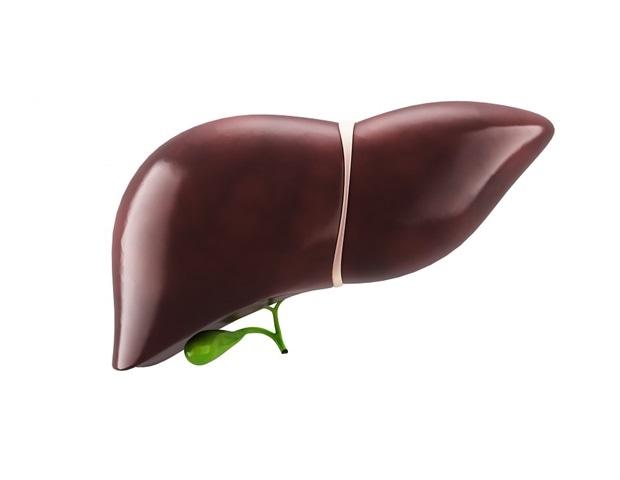
[ad_1]

The resilience and coping talents of sufferers who have had liver transplants range and alter over the years and are continuously related to sociodemographic components together with source of revenue, race, and training, a find out about led through UT Southwestern Clinical Middle researchers displays. The findings may just result in adapted interventions to optimize medical and patient-centered results amongst liver transplant recipients.
After we care for sufferers who’ve long past thru this life-changing surgical procedure, restoration in point of fact evolves over the years. We do not absolutely perceive or seize that with present metrics that target basically medical results corresponding to survival. The purpose of this undertaking was once to get a closer view of novel patient-reported ideas at other levels of survivorship.”
Sarah R. Lieber, M.D., M.S.C.R., Transplant Hepatologist, Assistant Professor of Interior Drugs and a member of the Department of Digestive and Liver Sicknesses
Dr. Lieber led the find out about revealed in Liver Transplantation, operating with UTSW mentor Amit G. Singal, M.D., M.S., Professor of Interior Drugs, a member of the Department of Digestive and Liver Sicknesses and the Harold C. Simmons Complete Most cancers Middle, Clinical Director of the Liver Tumor Program, and Leader of Hepatology.
Transplantation provides the danger for a remedy for hundreds of sufferers within the U.S. annually with illnesses or trauma that have an effect on the liver. Even supposing greater than 70% who obtain this surgical procedure continue to exist no less than 5 years, Dr. Lieber mentioned, their restoration will also be full of bodily, emotional, and mental demanding situations. Liver transplant survivors will have to adapt to a brand new existence that comes with strict medicine adherence, widespread medical tracking, and unanticipated headaches.
To higher perceive what components affect survivorship, Dr. Lieber and associates emailed surveys to loads of sufferers who won liver transplants between January 1990 and November 2019 and have been adopted on the College of North Carolina Liver Transplant Middle.
The surveys accrued sociodemographic data corresponding to age, intercourse, race, ethnicity, training stage, and source of revenue; pre-transplant traits corresponding to explanation why for transplantation, waitlist time, and psychiatric historical past; and post-transplant traits together with period of health center keep, employment standing, and whether or not sufferers had a caregiver. Additionally they incorporated survey questions validated for different persistent prerequisites to evaluate the sufferers’ talents to definitely cope in addition to their stage of post-traumatic enlargement (the facility to conform and develop after a stressful tournament), resiliency, and signs of tension and despair.
The researchers won 191 finished surveys from sufferers with a large span of survival classes starting from lower than a yr post-transplant to greater than 10 years. A majority of respondents have been male (about 64%) and Caucasian (about 84%) and ranged from 28 to 83 years outdated.
The surveys confirmed that even if 85% within the early survival duration (twelve months or much less) had prime post-traumatic enlargement, most effective about 15% of past due survivors (between 5 and 10 years) had the similar function. Prime resilience was once reported in most effective about 33% of survivors and was once related to rather prime source of revenue.
Decrease resilience was once observed amongst sufferers with longer health center remains and later survival levels. Sufferers who reported a decrease skill to manage after transplant have been much more likely to be 65 or older, non-Caucasian, have much less training, or wanted a transplant for nonviral liver illness. Dr. Lieber mentioned about 25% of liver transplant survivors had clinically important anxiousness and despair, extra widespread amongst early survivors and ladies with pre-transplant psychological well being problems.
Those traits may just lend a hand expect medical results, she mentioned. For instance, anxiousness and despair, the facility to manage, and resilience were proven to expect how neatly a affected person can self-manage care and have interaction successfully with the well being gadget for different persistent illnesses, and are vital predictors for high quality of existence and functioning, corresponding to the facility to go back to paintings and have interaction in day by day actions. Dr. Lieber and her colleagues plan to proceed to review different sides of survivorship in liver transplant sufferers, corresponding to how those variables trade over the years, which might lend a hand researchers broaden adapted interventions to give a boost to medical results and high quality of existence.
“Top of the range care of sufferers after liver transplant contains treating the entire particular person,” Dr. Lieber mentioned. “Survivorship analysis informs how we broaden and put into effect interventions to lend a hand our transplant neighborhood.”
Alvaro Noriega Ramirez, a Medical Analysis Assistant within the Department of Digestive and Liver Sicknesses, additionally contributed to this find out about.
This analysis was once funded through the UT Southwestern Fund to Retain Medical Scientists (UT-FOCUS), the American Middle Affiliation (923721), the Doris Duke Charitable Basis COVID-19 Fund to Retain Medical Scientists, and the American School of Gastroenterology Junior School Building Award.
Dr. Singal is a Dedman Circle of relatives Student in Medical Care and holds the Willis C. Maddrey, M.D. Prominent Chair in Liver Illness.
Supply:
Magazine reference:
Lieber, S. R., et al. (2023). Lively coping, resilience, post-traumatic enlargement, and psychiatric signs amongst early and past due liver transplant survivors. Liver Transplantation. doi.org/10.1097/lvt.0000000000000009.
[ad_2]